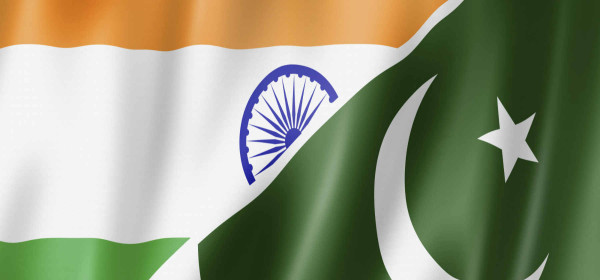Before going into the question raised in the title, let’s get into some details about some of the aspects of intelligence gathering employed by our external intelligence agency, the Research and Analysis Wing (R&AW).
The advent of technology has brought massive changes in the way spy agencies collect intelligence these days. But even the most powerful spy agencies believe that despite all the technological advancement, there is no substitute to human intelligence (HUMINT) gathering. For instance, even after employing all technical resources to track down Osama bin Laden, it was the HUMINT element that provided a key breakthrough in locating him.
All countries around the world do human intelligence gathering in other countries. Either they send their agents under diplomatic covers or cultivate assets in the target countries. Every spy agency in the world has its own modus operandi on carrying out such operations. India doesn’t have much HUMINT capabilities in the European countries or the US as it’s a costly affair to recruit assets in those countries.
But India does have intelligence gathering operations in neighboring countries and so do those countries have in India. The primary way they do this is via cultivating assets (mostly businessmen, traders, arms dealers). People do get caught while gathering information. In such cases, the target country registers their protest, may give consular access to the arrested person and eventually expel the person in question. China did send back an Indian businessman who was caught gathering information for India not so long time ago. Chinese don’t use their own agents to gather intelligence in other countries. Instead, they cultivate and use students, academic scholars, businessmen, and arms dealers.
There is also reluctance on the part of the Indian agents to directly get involved in intelligence gathering operations in other countries. The reason being the dismissal of some officers involved in such work in Sri Lanka and Bangladesh for not being able to give proper accounts of funds spent.
India-Pakistan spy games:
But the equation between India and Pakistan when it comes to such a situation is completely different. If such an opportunity arises where an Indian agent is arrested in their country, Pakistan would make every effort to milk the situation and create an international hue and cry to bolster their claim of Indian involvement in spreading violence in their country. And that is what it is doing in the case of Kulbushan Jadhav. The news of his capture and release of his video during the visit of their JIT team to Pathankot and Iranian President’s visit to Pakistan points to that. There are other domestic political/security angles too with the timing of the release of the information regarding this case.
Also, there are multiple versions related to Jadhav’s arrest. He was either captured in Chaman area (Pakistan-Afghanistan border) or Saravan area (Pakistan-Iran border). It is also not clear as to when he was picked up or who was responsible for his capture.
An interesting news report in the Mumbai Mirror has revealed that Jadhav’s “phone was under surveillance by the Pakistani agencies and they found something amiss about his conversations”.
“Jadhav’s habit of speaking to his family in Marathi and with extreme familiarity and comfort level in the language betrayed his cover his passport identifies him as Husain Mubarak Patel; but his mannerisms were nothing like that of a Muslim Patel,” the news report states.
We will never know the intricate details of why Jadhav was in that area or what was he doing there, under what circumstances was he arrested, who got hold of him first and so on. The Indian government will never acknowledge that he was working for the country. Once the agent is outed, he is disowned and all links to him cut off. That’s how intelligence works.
Road ahead for India:
It is an internationally established fact that Pakistan’s security establishment nurtures, supports and deploy various facets of its terrorism infrastructure against India and Afghanistan. Clearly, brandishing more than two decades of evidence of Pakistan’s state policy on terror in various international forums has had little impact on Pakistan for three reasons.
- The United States of America turns a blind eye to Pakistan’s state policy of supporting terrorism for a variety of geo-strategic self-interests.
- China continues to take advantage of India’s insecurity in calling out “Pakistan’s nuclear bluff.” The Indian security establishment must deal with Pakistan’s deployment of terrorism firmly without bringing the terrorist country’s nuclear-armed status into the decision-making calculus.
- Saudi Arabia’s funding for Pakistan-backed terror groups enables the Islamist terrorism to flourish. It is important for Indian policy makers to understand that terrorism and its related infrastructure is the biggest contributor to Pakistan’s GDP and, therefore, vital for the survival of its conflict economy. Take away the industry of terrorism from Pakistan, the country will collapse like nine-pins.
Therefore, it is time Indian decision makers took a clear, consistent and firm decision to call Pakistan’s nuclear bluff and go on the offensive. In fact, this is what most Pakistanis secretly desire — the collapse of the terrorist country of Pakistan. Given the nature of multi-pronged security threat India faces along its Western borders, it is important for India to embed eyes and ears on the ground. Why should India be apologetic about the threat India faces from Islamic State aligned terrorist groups arrayed along its Western borders?
In fact, India’s security establishment should redouble its efforts to recruit hundreds and thousands of local Pakistanis to create a robust network of ground intelligence rapporteurs. It is in India’s interest to deepen democracy in Pakistan by neutralizing the terrorist infrastructure of Pakistan’s security establishment. Without this infrastructure the Pakistani Army and its terrorist organization, Inter-Services Intelligence, won’t survive for even 24 hours.


One response to “Is Kulbhushan Jadhav an Indian agent?”
This entire post is based on the presumption that Jadhav is a RAW agent. Circumstances prove otherwise. He is just another business man who converted to Muslim religion after pre-mature retirement from the Navy. His reasons can be assumed to be personal. He was in Iran legally. His business in Iran was legal. He is a victim of Indo Pak politics where elements of Indian intelligence services presented him gift wrapped to Pakistan. Read more about this in my article on DailyO.